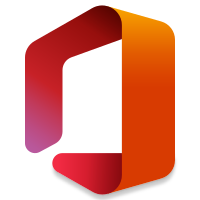 2022: Celebrating 25 years of Desktop Productivity with Microsoft 365
2022: Celebrating 25 years of Desktop Productivity with Microsoft 365
Although Microsoft Office was initially released in 1990, it was the release of Office 97 that established the suite of products as the premiere desktop productivity package. At that time, when computers weren’t as common in the workplace as they are today, the professional version of the desktop productivity package included five primary applications, a word processor (Word), a spreadsheet editor (Excel), a presentation program (PowerPoint), a database manager (Access) and a personal information manager (Outlook). Throughout the past 25 years, Microsoft released nine major versions of Office for Windows and eight major versions for Mac. These “on-premise” releases of Microsoft Office, the most recent being Office 2019, are what most people think of when thinking about Microsoft Office.
In 2010, facing stiff competition from Google Apps (a cloud-based, productivity and collaboration suite), Microsoft began the gradual shift to offering Microsoft Office as a service on a subscription basis. This subscription-based service would extend the use of Office products into the cloud and across mobile platforms including iOS and Android. In 2020, this product was rebranded as Microsoft 365.
In 2022, due to changes in the University’s licensing of Microsoft products, Information Technology will start shifting computers from yesteryear’s on-premise version of Microsoft Office 2019 to the modern work experience of Microsoft 365. The productivity applications you’ve come to rely on (e.g., Word, Excel, PowerPoint, Outlook, OneNote, OneDrive, Teams) will still be available on each and every classroom, lab and office computer. The experience of using these applications will remain familiar and consistent.
Microsoft 365 Resources and Training
Microsoft 365 Learning Resources (authentication required) has been customized by the University’s Division of Information Technology team. This resource is curated to provide our campus with updated training information for the products that are available on our campus.
Power Automate is available on our campus. For resources, visit Microsoft Power Automate documentation.
The Microsoft 365 Training website combines video and step-by-step training with template, quick starts and easy handouts.
Teams Beginner Training for Faculty and Staff
Through Bookings, you can reserve Microsoft Teams training to review Teams and answer any other M365 program questions. Feel free to bring a colleague. This one-hour session is in-person in AMH 109. This is a beginner session. Click here for online resources and training.
Windows 11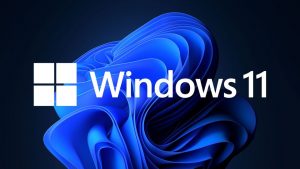
Windows 11, the newest, major version of Microsoft’s operating system was released on October 5, 2021. For an organization, the release of any new operating system can be challenging as resources need to be allocated to confirm that legacy hardware and software is compatible with the new operating system. Processes for deploying and managing the new operating system also need to be verified.
Information Technology is preparing its strategy for migrating to Windows 11. More information about this strategy and the availability of Windows 11 will be communicated in 2022. In the meantime, rest assured that your Windows 10 computer will continue being secured, maintained and managed.
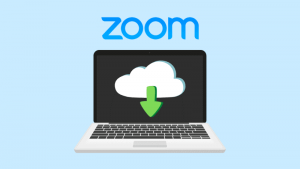 Our Zoom license provides users with limited cloud storage. Information Technology will monitor the storage and we remind users to review their cloud recordings to allow for continued cloud storage through next semester.
Our Zoom license provides users with limited cloud storage. Information Technology will monitor the storage and we remind users to review their cloud recordings to allow for continued cloud storage through next semester.
 Back in 2019, the Infrastructure Services team began its campus network infrastructure upgrade project by upgrading and replacing the wireless infrastructure and network switches in the first year student residence halls, allowing for faster wireless network speeds (Phase 1).
Back in 2019, the Infrastructure Services team began its campus network infrastructure upgrade project by upgrading and replacing the wireless infrastructure and network switches in the first year student residence halls, allowing for faster wireless network speeds (Phase 1). Information Technology has various processes in place for the procurement of computer hardware, software and services. These processes improve efficiency, ensure appropriate justification/approvals, and increase value of hardware, services and software procurement.
Information Technology has various processes in place for the procurement of computer hardware, software and services. These processes improve efficiency, ensure appropriate justification/approvals, and increase value of hardware, services and software procurement.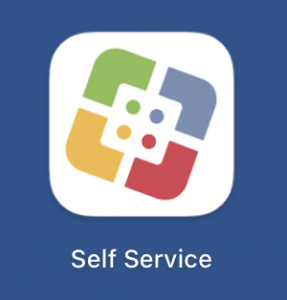
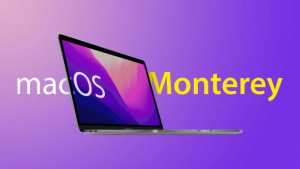
 Global supply chain issues and the computer chip shortage continue to worsen and are not expected to end until late 2022 and possibly longer. The upcoming holiday season will only increase delivery delays.
Global supply chain issues and the computer chip shortage continue to worsen and are not expected to end until late 2022 and possibly longer. The upcoming holiday season will only increase delivery delays. 2022: Celebrating 25 years of Desktop Productivity with Microsoft 365
2022: Celebrating 25 years of Desktop Productivity with Microsoft 365